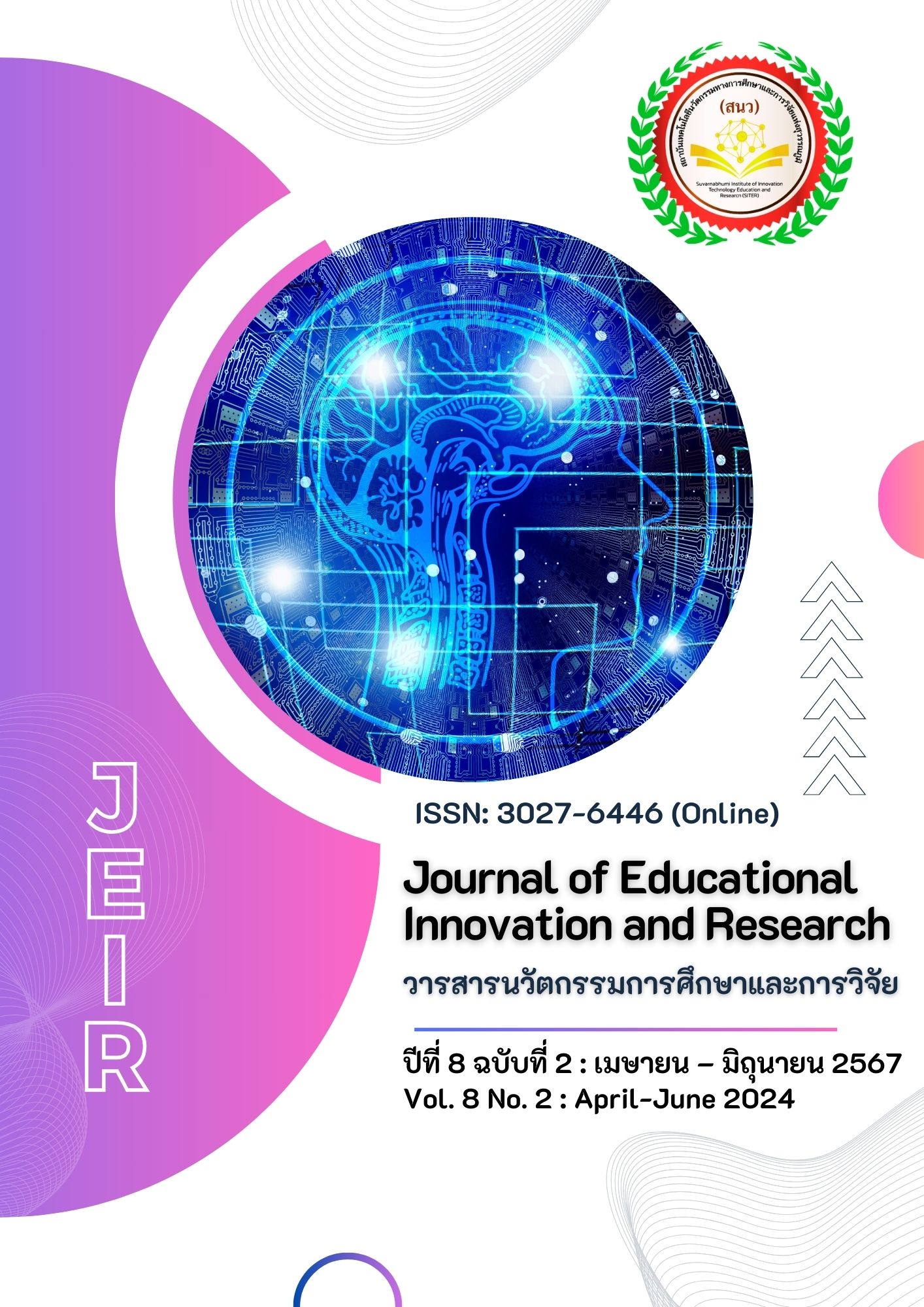กลยุทธ์การธำรงรักษาและความจงรักภักดีต่อองค์กรของบุคลากร สังกัดมหาวิทยาลัยเทคโนโลยีราชมงคล
Main Article Content
บทคัดย่อ
บทความนี้เป็นวิจัยแบบผสมผสานโดยการวิจัยเชิงปริมาณและวิจัยเชิงคุณภาพมีวัตถุประสงค์ 1) เพื่อศึกษาองค์ประกอบกลยุทธ์การธำรงรักษาและความจงรักภักดีต่อองค์กรของบุคลากรสังกัดมหาวิทยาลัยเทคโนโลยีราชมงคล 2) เพื่อพัฒนากลยุทธ์การธำรงรักษาและความจงรักภักดีต่อองค์กร ของบุคลากรสังกัดมหาวิทยาลัยเทคโนโลยีราชมงคล และ 3) เพื่อประเมินและยืนยันกลยุทธ์การธำรงรักษาและความจงรักภักดีต่อองค์กรของบุคลากรสังกัดมหาวิทยาลัยเทคโนโลยีราชมงคลที่มีความเหมาะสมมีความสอดคล้อง ความมีประโยชน์ มีความเป็นไปได้ กลุ่มตัวอย่าง คือ บุคลากรสายสนับสนุน 370 คน ผู้ให้ข้อมูลสำคัญ 11 คน เครื่องมือที่ใช้เป็นแบบสอบถามและการสัมมานาอ้างอิงผู้เชี่ยวชาญ สถิติที่ใช้ในการวิเคราะห์ข้อมูล ได้แก่ ความถี่ ร้อยละ มัชฌิมเลขคณิตส่วนเบี่ยงเบนมาตรฐาน วิเคราะห์องค์ประกอบเชิงสำรวจและวิเคราะห์เชิงเนื้อหา ผลการวิจัยพบว่า
1) องค์ประกอบกลยุทธ์การธำรงรักษาและความจงรักภักดีต่อองค์กรของบุคลากรสังกัด มหาวิทยาลัยเทคโนโลยีราชมงคล 4 องค์ประกอบ คือ 1. องค์กรที่มั่นคง 2. การบริหารและการจัดการองค์กร 3. การจัดการทรัพยากรมนุษย์ และ 4. ประสบการณ์และความก้าวหน้าในอาชีพ
2) กลยุทธ์การธำรงรักษาและความจงรักภักดีต่อองค์กรของบุคลากรสังกัดมหาวิทยาลัยเทคโนโลยีราชมงคล 4 กลยุทธ์ คือ กลยุทธ์ที่ 1 การสร้างวัฒนธรรมองค์กรที่มั่นคงและยั่งยืน กลยุทธ์ที่ 2 การบริหารและการจัดการองค์กรสู่ความสำเร็จ กลยุทธ์ที่ 3 การจัดการทรัพยากรมนุษย์อย่างยั่งยืน และกลยุทธ์ที่ 4 การสร้างความมั่นคงและความก้าวหน้าในอาชีพ
3) ผลการประเมินและยืนยันกลยุทธ์การธำรงรักษาและความจงรักภักดีต่อองค์กรของบุคลากร สังกัดมหาวิทยาลัยเทคโนโลยีราชมงคล 4 กลยุทธ์ มีความเหมาะสม มีความสอดคล้อง ความมีประโยชน์และมีความเป็นไปได้
Article Details

อนุญาตภายใต้เงื่อนไข Creative Commons Attribution-NonCommercial-NoDerivatives 4.0 International License.
เอกสารอ้างอิง
Aek-U, S. (2017). Employee Retention of Thonburi Hospital Public Company Limited. Master's Degree in Labor Development and Welfare. Bangkok: Thammasat University.
Baron, A.R. (1986). Behavior in Organizations. Boston: Allyn and Bacon Inc.
Baron, R A. & Greenberg, J. (1995). Behavior Organization. (3rd. Ed.). New York: Allyn & Bacon.
Bateman, T.S. & Snell, S.A. (2007). Management: Building Competitive Advantage. (4th ed.). Boston: McGraw-Hill.
Chanarawee, P. (2013). loyalty. http://pachanon.blogspot.com/2013/06/loyalty-power-of-development -and-outlast.html
Charla, W. (2016). Loyalty of employees towards Toyota Gosei Asia Co., Ltd., Chonburi Province [Master’s Thesis, Burapha University].
Chayamarit, S. (2021). Human resource development to Support the digital age of public and private. Organizations. Interdisciplinary Journal of the Humanities and Social Sciences, (1), 89-100.
Chuanchob, N. (2017). Factor affecting personnel to have sustainable loyalty. To the organization case Study Human Resource Management Division Office of the Permanent Secretary, Ministry of public Health [Master’s Thesis, Thammasat University].
Eisner, E. (1976). Education connoisseurship and criticism: Their form and function in educational evaluation. The Journal of Aesthetic Education, 10(3/4),135.
Fogliasso, C.E., and Linn, T. (2013). Job Satisfaction, Commitment, and Loyalty in the Workplace. Leadership & Organizational Management Journal,1, 15-20.
Guskey, T. R. (2000). Evaluation professional development. California: A sage.
littisom, N. (2015). Tactics for Enhancing Organizational Engagement of Government Teachers under Bangkok. Politian Administration [Master’s Thesis, Silpakorn University].
Meyer, J.P. and Allen, N.J. (1999).A Three-Component Conceptualization of Organizational Commitment. Human resource management review, 1, 61-98.
Moonmuang, S. (2022). Organizational Commitment of Personnel in SaiMai District Office, Bangkok. Journal of Innovation Management in Education and Research, 3(1), 29 - 40.
Poompongkhodchasorn, P. (2020). Classroom management to develop learning skills in the 21st Century. Journal of Interdisciplinary Humanities and Social Sciences, 3(3), 591-600.
Rungcharoensuksri, S. (2015).Commitment to the organization Career development and employee welfare satisfaction affect the loyalty of operational employees of private companies in the region [Master’s Thesis, Bangkok University].
SangSawang, A. (2021). Human Resource Management. Bangkok: Aksaraphiphat.
Swamiwatsukit, N. (2015). Head and Colleague working environment and job motivation correlated with talent retention expectation of operational level employees [Master’s Thesis, Bangkok University].
Tantrachin, P. and Chantak, T. (2016). Development and maintenance of talented people in the organization an important mechanism to drive the organization to Success. Bangkok: Silpakorn University.
Thardhod, W. (2016). Factors affecting the retention of public health personnel. In Phetchaburi Province [Master’s Thesis, Stamford International University].
Wichaiyut, P. (2017). Earning retention and loyalty to the organization: A Case study of Public University Personal in Songkhla Province [Bachelor of Business Administration Business Management, Thaksin University].
Worchang-Ngern, P. (2017). Organizational Behavior. Bangkok: Total messages.


